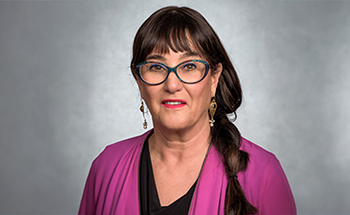written by Sarah L. Minor, MS

African Americans are significantly less likely to receive goal-concordant end-of-life (EoL) and serious illness care due to systemic and individual racism and a misunderstanding of and respect for cultural differences. To address these disparities, Ronit Elk, MD, professor of medicine in the Division of Gerontology, Geriatrics, and Palliative Care, is leading an innovative NIA R01 project training program, “African American Communities Speak to Health Care Providers” using a Community-Based Participatory Research (CBPR) approach. In partnership with Community Advisory Boards in Birmingham and the Bronx, they will create culturally aligned and racially just care practices informed by the community’s cultural and religious values, as well as their experiences with racism.
"Most healthcare providers are dedicated to equitable care, yet health disparities persist across medical disciplines," Dr. Elk explains. "CBPR, an approach where academics collaborate equitably with minoritized communities, has proven to reduce these disparities."
The disparities in EoL and serious illness care among African Americans reflect a deep-rooted inequity that impacts the quality of life at its most critical juncture. This initiative, developed with African American communities in the Bronx and Birmingham, aims to address health care inequities by training clinicians to better understand and meet the needs of these communities. Based on a pilot study in partnership with a rural African American community, early results show that clinicians gained greater cultural insight and confidence to adjust practices according to community recommendations.
This program aims to ensure that all patients at EoL or with a serious illness receive care that aligns with their values and needs, regardless of their background. For more details on this transformative study, visit the NIH Reporter to read the full abstract.
Funded by an R01 grant from the National Institute on Aging, this initiative is essential for advancing health equity for older African American adults. Additionally, Dr. Elk has received a K07 Career Development Award for Senior Investigators to create a national program that trains professionals in geriatrics, gerontology, and palliative care to collaborate with minoritized communities, further promoting health equity for older adults across the U.S.